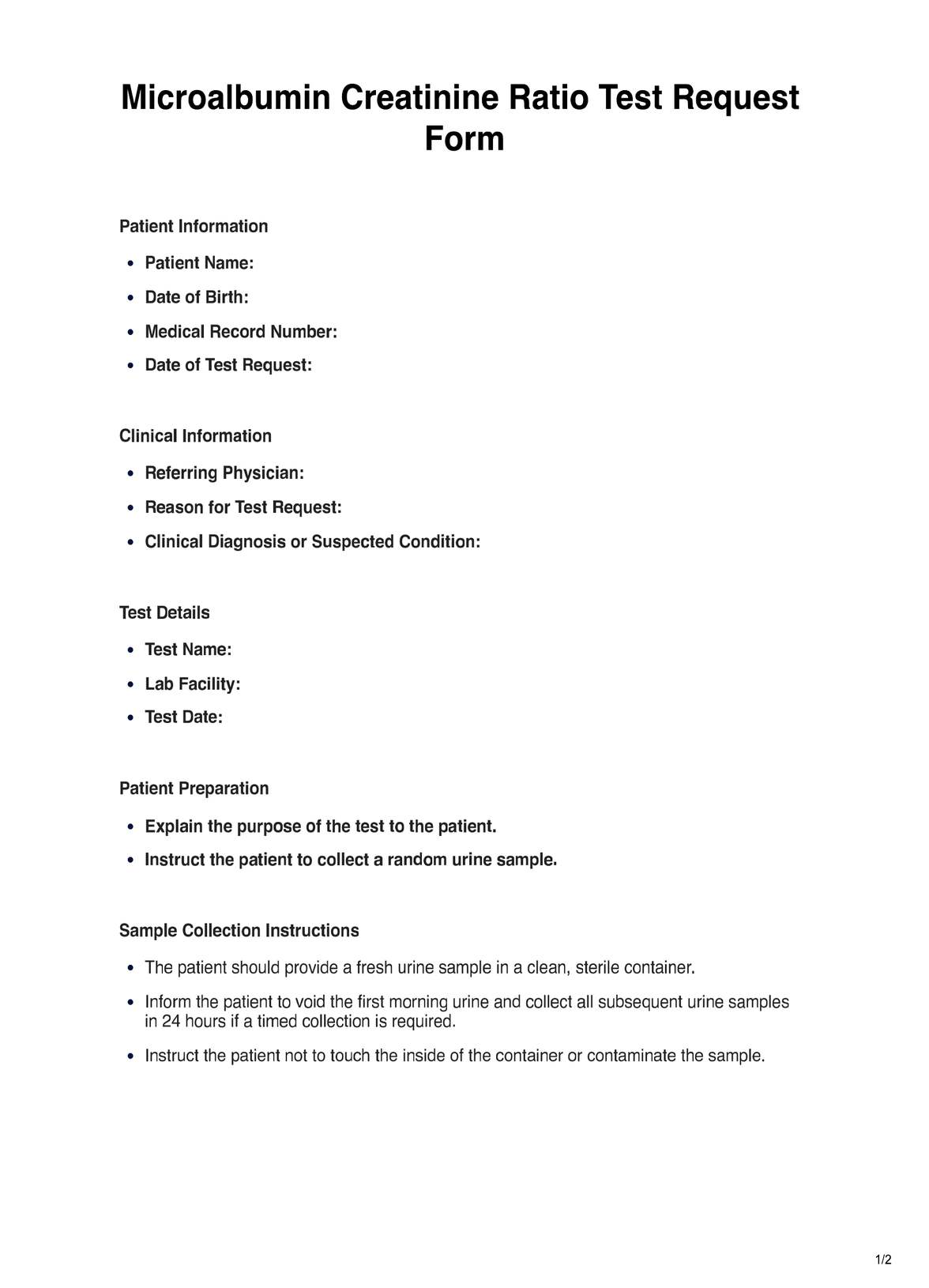The test is typically requested by healthcare providers, especially for individuals with diabetes, hypertension, or a family history of kidney issues.

Microalbumin Creatinine Ratio
Get insights into your kidney health with the Microalbumin Creatinine Ratio Test. Monitor diabetes-related kidney issues.
Use Template
Microalbumin Creatinine Ratio Template
Commonly asked questions
Patients provide a urine sample, then analyzed in a clinical laboratory. The test measures the ratio of microalbumin to creatinine to evaluate kidney health.
Patients provide a urine sample, then analyzed in a clinical laboratory. The test measures the ratio of microalbumin to creatinine to evaluate kidney health.
EHR and practice management software
Get started for free
*No credit card required
Free
$0/usd
Unlimited clients
Telehealth
1GB of storage
Client portal text
Automated billing and online payments











